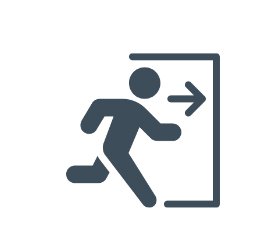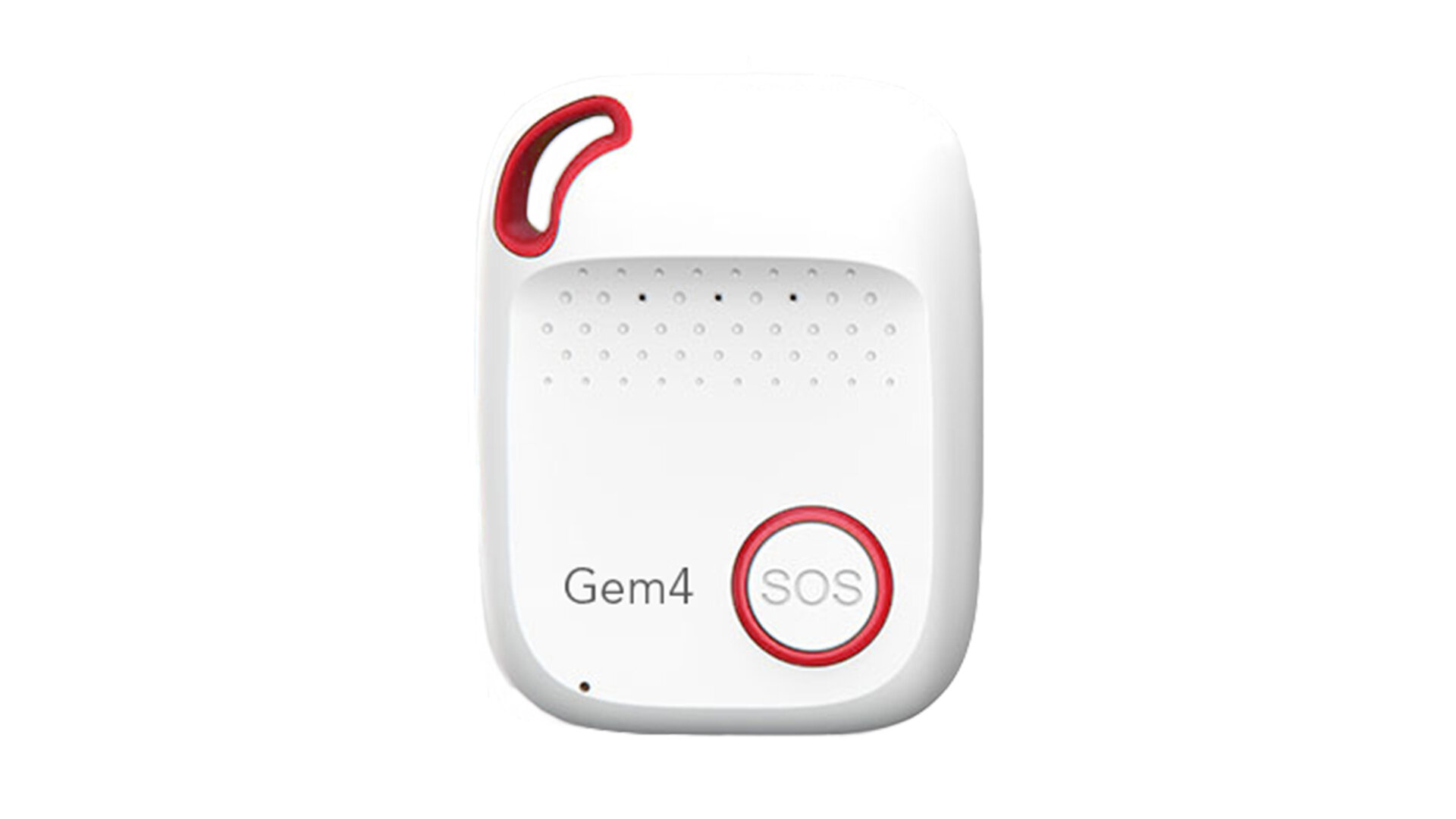Lone Worker Monitoring & Safety Solutions
Keep your workers safe 24/7
Tunstall can help business managers and owners to protect their people, by offering a range of technologically advanced lone worker safety solutions - products and services designed specifically for staff working on their own, travelling alone, or in hazardous environments.
It is the legal obligation of all employers to provide safe working conditions for all employees, including lone workers. The hazards of individual roles should be identified, the risks assessed, and processes put in place to ensure communication and access to emergency services are available 24/7.
To allow employers to reliably protect their employees, Tunstall has developed a range of mobile and fixed solutions suitable for a variety of work environments and situations, all supported by our 24/7 monitoring service.
Who is a Lone Worker?
A lone worker is any employee who works alone and away from the direct supervision of a manager or colleague. Lone workers are vulnerable individuals that usually experience unique safety risks as they are isolated from other people and calling for help might be difficult in case of a medical emergency or exposure to other workplace hazards.
Examples of Lone Workers in the Workforce
Contrary to the name, lone workers are not alone all the time. They are still considered a lone worker if they:
Are often isolated from co-workers, supervisors, and even other members of the public (e.g. social workers)
Work remotely or separately from others (e.g., stationed in a regional office, working from home)
Work past regular office hours (e.g., security personnel, call centre employees,)
Travel long distances as part of their work (e.g., taxi drivers, freight transport drivers, community workers)
Work in a downsized team (i.e., less manpower on holidays)
Work that requires them to be isolated from others (i.e., healthcare workers)
Work in hazardous environments (e.g., construction workers)
Potential Hazards That Lone Workers Face
For those who work either alone or remotely for long or short periods of time, these are potential hazards they should be wary of:
Exposure to physical violence or confrontation
Inadequate access to emergency facilities
Workplace injury from being required to perform work tasks alone
Why is Lone Worker Safety Important?
Lone workers are more susceptible to danger than those who work in pairs or groups. They're unable to rely on each other for help and protection, leaving them vulnerable should anything go wrong. In addition, if something does happen to a lone worker, it's unlikely that anyone would become aware of the situation quickly enough to provide assistance.
That's why it's important for employers and managers of lone workers to take extra steps to ensure their safety while they're working in isolation. By implementing the right lone-worker safety solutions, you can help keep them safe and give them peace of mind when they're out on their own.
Tunstall Products for your Lone Worker Safety Program
Tunstall can help business managers and owners protect their people, by offering a range of technologically advanced products and services designed specifically for staff travelling or working on their own, or in hazardous environments.
Lone Worker Safety Systems & Lone Worker Safety Devices
Tunstall Gem4
Lone working employees in remote areas and hazardous environments are more susceptible to falls and other accidents. Equipping your isolated employees with a lone worker alarm such as a fall detector or panic button like the Tunstall Gem4 can help facilitate faster responses in the case of workplace accidents. This wearable technology can ensure that your lone workers can get access to help 24/7, giving both employer and employee peace of mind that they will receive timely assistance in an emergency situation. The Tunstall Gem4 also comes equipped with GPS tracking so a response team can quickly reach the person in need at the exact location of the accident.
The Tunstall Gem4 is a medical alert pendant that can be worn around the neck like a pendant, and it has an SOS button which, when pressed, connects the user to Tunstall’s 24/7 Customer Care Centre. This allows the user to generate an alarm call in case of emergencies.
Whether you're out for a walk or just running errands, the Tunstall Gem4 can help you feel secure knowing that help is always within reach. With its simple design and user-friendly interface, the Tunstall Gem4 is perfect for anyone who wants the security of a personal alarm system with the added benefits of GPS tracking.
Key Features:
Easy to use SOS button to raise an alarm
GPS location to accurately locate the wearer
Connects to 24/7 Customer Care Centre
Automatic fall detection alert (if enabled)
Open voice communication, allowing the wearer to speak directly with a Customer Care Consultant
SOS activation can be triggered via the charging base if the device is within Bluetooth range and sufficiently charged.
USB-powered charging dock
Compatible with the 4G network
IP67 Water resistant
Ability to find lost devices
Device feedback by voice prompts and vibration
How Our Lone Worker Safety Solutions Work
To allow employers to reliably protect their employees, Tunstall has developed a range of mobile and fixed solutions suitable for a variety of work environments and situations, all supported by our 24/7 monitoring service so you can rest assured that your employees are covered at any time of day.
Tunstall's Lone Worker Monitoring uses a bespoke monitoring device that allows employees to check in with a dedicated contact centre. Since they can connect to a smartphone, tablet or smartwatch, they can check in and check out wherever their work assignment may be, in addition to being able to trigger a duress call at any time. Our Care Consultants work around the clock to follow up on incidents, monitor real-time alerts and can signal for an employer or emergency services to assist, offering direct support when needed.
In the unfortunate event that a lone worker becomes injured, our Care Consultants can monitor and take action to remedy the situation. Should a lone worker fail to check in or check out of their work schedule, our consultants will follow up with them and their employer until a resolution is achieved and the employee's safety is confirmed.
How organisations can partner with Tunstall for Lone Worker Safety
Healthcare and community care organisations, such as Ozcare, provide a wide range of health and community services to their clients. These services may include aged care, nursing services, allied health support, dementia care, and other community support services.
By partnering with Tunstall and using our Lone Worker Safety Solutions, including our highly-regarded Connected Care Service, these partner organisations are able to ensure safety and peace of mind for their lone workers and care staff. This allows them to focus on delivering exceptional service and high-quality care for their clients.
Overall, these partnerships between healthcare and community care organisations and Tunstall help to provide much-needed support and resources to those in need, improving the lives of both the clients and the care staff.
Want to learn more about our Lone Worker Safety Solutions for yourself or your employees?
If you're interested in our lone worker safety solutions, please contact our team to arrange a quote.
What people are saying
Lone Worker Products FAQs
+ What is the price of your Lone Worker Solutions?
At Tunstall Healthcare, we understand that every company has its own unique work environment. We believe your input is crucial in figuring out an ideal lone worker safety solution plan that best suits your business and employees. As such, our installation and price points are tailor-fit to consider your company’s size as well as the products and services you require. Contact us to learn more about our tailored lone worker solutions packages or arrange a quote.
+ Which factors can increase the risk for lone workers?
There are a few key risk factors that can increase the likelihood of an incident happening for lone workers. These include: working in isolated or remote areas, working in high-risk occupations such as construction or security, and working alone for long periods of time. In addition, some personal factors can also increase the risk for lone workers. This includes having a history of mental health issues, being new to the job, and having a lack of social support. Employers should take steps to mitigate these risks by implementing policies and procedures that promote safety while working alone. This may include installing safety equipment and systems, providing training on how to stay safe while working alone, and establishing emergency contact procedures.
+ Is there any training required to use your products?
Our products are designed with user-first design principles in mind and are intuitive and simple to operate. For our partner organisations we do ensure onboarding and setup are completed for all their alarm units and users.











⭐⭐⭐⭐⭐
“Gives a good feeling of safety, knowing at the press of a button assistance is available.”
- Mrs G., VIC